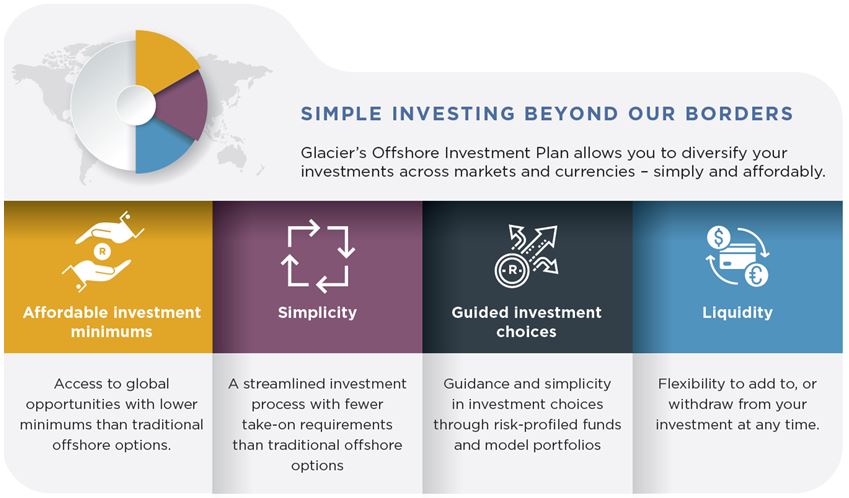9 FAQs About Investing Off Shore Answered by Experts
Wiki Article
Discovering Exactly How Spending Off Coast Functions: A Comprehensive Guide
Investing offshore presents a complicated landscape of difficulties and opportunities. Understanding the different sorts of offshore accounts is essential for anybody considering this path. The advantages, including improved personal privacy and property security, are considerable. However, lawful and tax implications warrant mindful focus. As capitalists seek to maximize their portfolios, the actions to establish a practical overseas financial investment approach become crucial. What are the essential elements that one must navigate to be successful in this endeavor?Understanding Offshore Accounts and Their Types
What drives individuals and companies to ponder overseas accounts? The attraction of economic personal privacy, property protection, and possible tax benefits commonly attracts the attention of those looking for to handle their wealth more purposefully. Offshore accounts, usually developed in international jurisdictions, come in different kinds. Personal accounts accommodate individual requirements, using services like financial savings, investment, or retirement preparation. Company accounts, on the various other hand, offer business aiming to facilitate international purchases, enhance privacy, or optimize tax obligation commitments. Trust fund accounts give an extra layer of defense, permitting people to guard their assets for future beneficiaries. Each kind of overseas account provides one-of-a-kind functions, commonly affected by the governing environment of the host nation. Comprehending these differences is essential for people and companies, as the choice of account type can especially influence their economic strategies and compliance with worldwide legislations.Benefits of Offshore Spending
While numerous financiers look for chances to diversify their portfolios, offshore investing presents distinctive advantages that can enhance financial development and safety and security. One noteworthy benefit is the potential for asset security. Offshore accounts can secure investments from political instability or financial slumps in the financier's home country. Additionally, offshore investments commonly offer access to international markets, permitting investors to tap into emerging economies and markets that may not be offered domestically.Another significant advantage is tax obligation effectiveness. Numerous overseas jurisdictions provide beneficial tax obligation programs, which can lessen tax obligations and enhance overall returns. Additionally, offshore investing can enhance privacy, as particular jurisdictions enforce rigorous discretion laws.Lastly, offshore accounts can assist in riches monitoring strategies by giving a bigger range of investment choices, including different properties such as real estate and assets. Collectively, these advantages make overseas investing an appealing option for those wanting to strengthen their monetary profiles.
Regulative and lawful Factors to consider
Steering with the regulative and legal landscape of overseas investing calls for mindful interest and understanding. Investing Off Shore. Investors need to navigate an intricate web of regulations that vary considerably from one jurisdiction to one more. Conformity with neighborhood regulations is important; failure to do so can cause extreme fines, including penalties and jail time. In addition, knowing the lawful structures governing foreign financial investments is important for assuring the defense read review of properties and keeping operational legitimacy.Key factors to consider consist of recognizing the governing needs for developing overseas entities, such as depends on or companies, and adhering to anti-money laundering (AML) and know-your-customer (KYC) guidelines. Capitalists need to likewise understand reporting responsibilities in their home nation, as many countries require disclosure of offshore holdings. Engaging with lawful experts experienced in offshore financial investment can provide vital advice, aiding investors to mitigate threats and secure compliance with suitable legislations and guidelines while optimizing their financial investment capacity
:max_bytes(150000):strip_icc()/offshore.asp-FINAL-1-941110e2e9984a8d966656fc521cdd61.png)
Tax Ramifications of Offshore Investments
Comprehending the governing and legal considerations of offshore investing normally causes an evaluation of the tax ramifications connected with these investments. Offshore financial investments can use considerable tax obligation benefits, consisting of decreased tax obligation rates and the potential for tax deferment. Investors need to browse complicated tax obligation policies in their home countries, as many jurisdictions need taxpayers to report foreign revenue and assets.For U.S. residents, the Foreign Account Tax Compliance Act (FATCA) mandates the coverage of offshore accounts, while various other nations have similar requirements. Failing to conform can cause serious fines. In addition, particular overseas funds might undergo special tax obligation treatments, such as Passive Foreign Investment Firm (PFIC) guidelines, making complex investment strategies.Investors should think about consulting tax obligation specialists to understand effects certain to their scenarios and guarantee conformity with both residential and worldwide tax obligation regulations, ultimately making best use of the advantages of their offshore investments while minimizing threats.Actions to Begin With Offshore Spending
Numerous financiers seeking to expand their profiles transform to offshore investing as a practical option. To start, one need to conduct extensive study on possible offshore territories, thinking about elements such as regulative setting, taxation, and financial investment opportunities. Investing Off Shore. After selecting a suitable location, financiers must develop an offshore account, which normally needs paperwork confirming identification and source of funds.Next, financiers typically engage with a monetary consultant or an overseas financial investment firm familiar with regional legislations and market dynamics. This partnership can aid in crafting a tailored investment method that aligns with private goals and run the risk of tolerance.Once the approach remains in area, investors can proceed to select particular assets or funds for investment, ensuring they examine efficiency and risks on a regular basis. Maintaining compliance with both local and home country guidelines is important for successful overseas investing, requiring recurring persistance and possibly regular consultations with legal experts.
Frequently Asked Questions
Exactly how Do I Select the Right Offshore Jurisdiction?
Selecting the appropriate overseas jurisdiction involves check out here assessing variables such as regulatory environment, tax obligation advantages, political security, and simplicity of working. Investigating each option thoroughly guarantees enlightened decisions that align with individual financial investment goals and risk resistance.What Kinds Of Possessions Can I Hold Offshore?

Are There Threats Related To Offshore Investing?
The dangers related to offshore investing consist of legal intricacies, regulative adjustments, money variations, and prospective political instability. Financiers need to meticulously assess these factors to mitigate dangers and guarantee conformity with global regulations and regulations.Exactly How Can I Gain Access To My Offshore Funds?
To access offshore funds, people generally require to call their monetary institution, provide essential recognition and paperwork, and follow well-known procedures for fund transfers, making sure compliance with both global and neighborhood laws regulating overseas investments.
What Are Common False Impressions Concerning Offshore Accounts?
Common false impressions concerning offshore accounts consist of beliefs that they are exclusively for tax evasion, absence of policy, or just accessible to the affluent. In truth, they can be legitimate financial tools for diverse people. In addition, offshore investments often offer access to international markets, enabling investors to touch right into emerging economies and industries that might not be offered domestically.Another substantial advantage is tax obligation effectiveness. Overseas investing can improve personal privacy, as certain territories apply rigorous confidentiality laws.Lastly, offshore accounts can promote riches management techniques by offering a broader array of investment options, including alternate possessions such as genuine estate and products. Understanding the governing and lawful factors to consider of overseas investing normally leads to an examination of the tax implications associated with these investments. Offshore financial investments can supply substantial tax obligation benefits, including lowered tax prices and the possibility for tax obligation deferral. After picking an appropriate place, investors should develop an overseas account, which her response normally calls for documents verifying identity and source of funds.Next, capitalists usually engage with an economic advisor or an offshore financial investment company acquainted with regional legislations and market dynamics.Report this wiki page